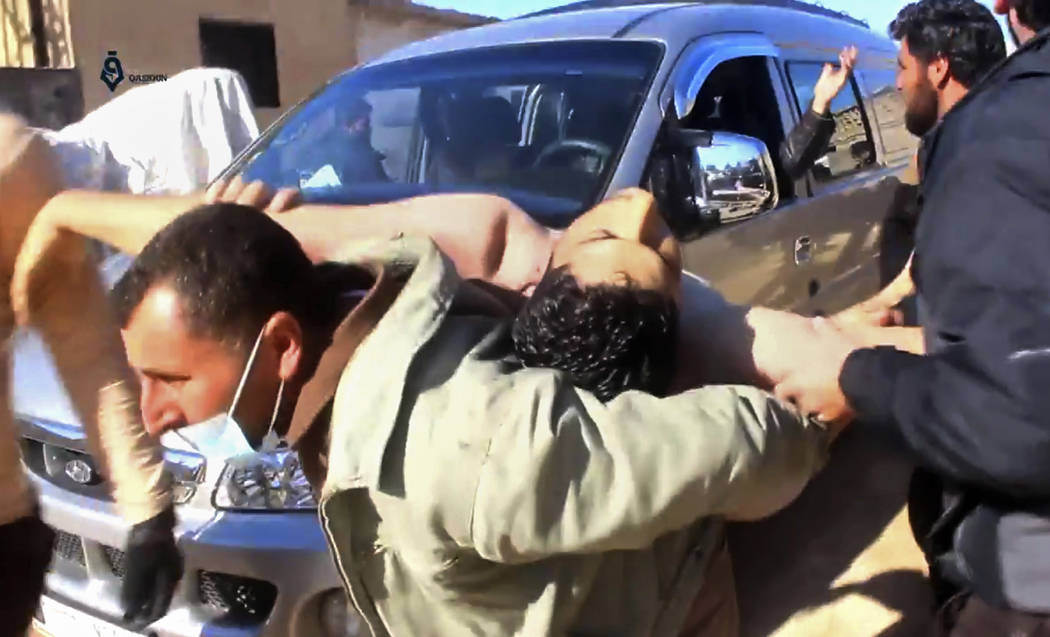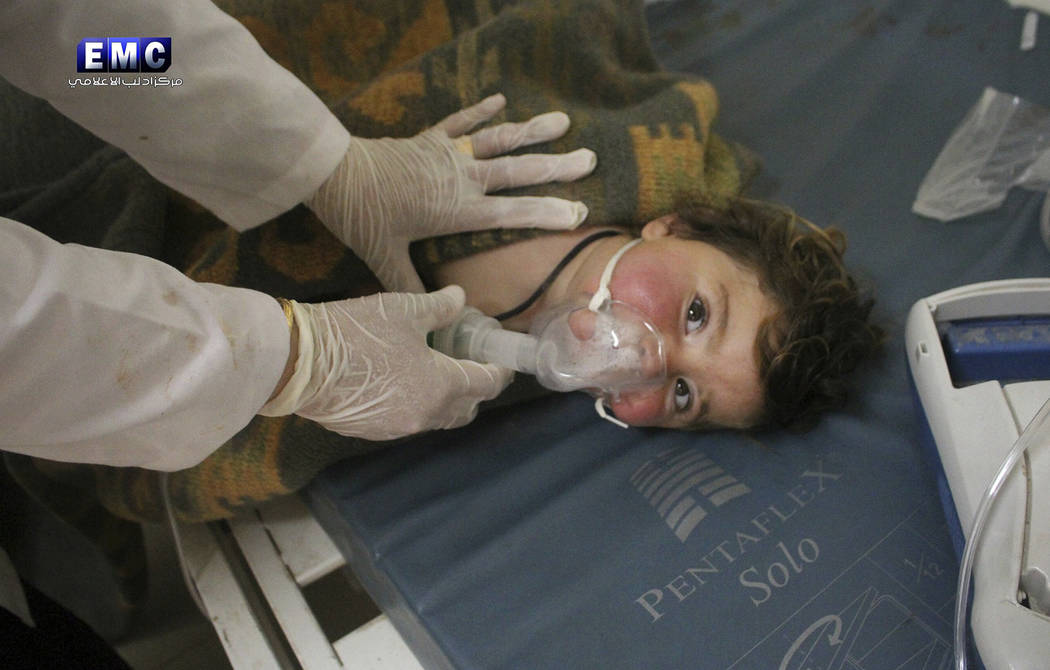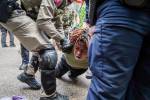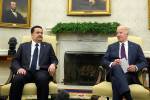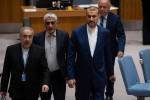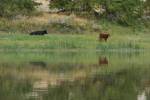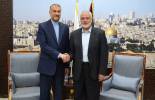Gas attack in Syria kills dozens, including children
BEIRUT — A suspected chemical attack in a town in Syria’s rebel-held northern Idlib province killed dozens of people on Tuesday, opposition activists said, describing the attack as among the worst in the country’s six-year civil war.
Hours later, a small field hospital in the region was struck and destroyed, according to a civil defense worker in the area. There was no information if anyone was killed in that attack.
The Britain-based Syrian Observatory for Human Rights monitoring group put the death toll from the gas attack at 58, saying there were 11 children among the dead. Meanwhile, the Idlib Media Center said dozens of people had been killed.
The media center published footage of medical workers appearing to intubate an unresponsive man stripped down to his underwear and hooking up a little girl foaming at the mouth to a ventilator. It was not immediately clear if all those killed died from suffocation or were struck by other airstrikes occurring in the area around the same time.
It was the third claim of a chemical attack in just over a week in Syria. The previous two were reported in Hama province, in an area not far from Khan Sheikhoun, the site of Tuesday’s alleged attack.
Tuesday’s reports came on the eve of a major international meeting in Brussels on the future of Syria and the region, to be hosted by the EU’s High Representative Federica Mogherini.
There was no comment from the government in Damascus in the immediate aftermath of the attack, which activists said was the worst since the 2013 toxic gas attack on the Damascus suburb of Ghouta that killed hundreds of civilians. That attack, which a U.N. report said was an attack by toxic sarin gas, was the worst in Syria’s civil war.
WHITE HOUSE REACTION
The White House is condemning the Syrian government for what it described as a “heinous” chemical attack against civilians.
Spokesman Sean Spicer said Tuesday’s attack in the Syrian city of Idlib is “reprehensible and cannot be ignored by the civilized world.”
But Spicer says the actions of Syrian President Bashar Assad’s regime are a consequence of the Obama administration’s “weakness and irresolution” in addressing the Syrian civil war.
Spicer says that President Barack Obama said he would draw a “red line” at chemical attacks, “then did nothing.”
Spicer would not say whether the White House believes Russia played a role in the attack, saying President Donald Trump has been briefed.
He says Trump is “extremely alarmed” by this “intolerable act.”
ASSAD’S AGREEMENT
In the wake of the 2013 attack, President Bashar Assad agreed to a Russia-sponsored deal to destroy his chemical arsenal and joined the Chemical Weapons Convention. His government declared a 1,300-ton stockpile of chemical weapons and so-called precursor chemicals that can be used to make weapons amid international outrage at a nerve gas attack on the outskirts of Damascus.
Those weapons have been destroyed, but member states of the OPCW have repeatedly questioned whether Assad declared everything in 2013. The widely available chemical chlorine was not covered in the 2013 declaration and activists say they have documented dozens of cases of chlorine gas attacks since then.
The Syrian government has consistently denied using chemical weapons and chlorine gas, accusing the rebels of deploying it in the war instead.
TREATING INJURED
The Syrian activists claimed the attack was caused by an airstrike carried out either by Syrian government or Russian warplanes. Makeshift hospitals soon crowded with people suffocating, they said.
Mohammed Hassoun, a media activist in nearby Sarmin — also in Idlib province where some of the critical cases were transferred — said the hospital there had been equipped to deal with such chemical attacks because the town was struck in one chemical attack, early on in the Syrian uprising.
The wounded have been “distributed around in rural Idlib,” he told The Associated Press by phone. “There are 18 critical cases here. They were unconscious, they had seizures and when oxygen was administered, they bled from the nose and mouth.”
Hassoun, who is documenting the attack for the medical society, said the doctors there have said it is likely more than one gas. “Chlorine gas doesn’t cause such convulsions,” he said, adding that doctors suspect sarin was used.
Hussein Kayal, a photographer for the Idlib Media Center, said he was awoken by the sound of a bomb blast around 6:30 a.m. When he arrived at the scene there was no smell, he said.
He found entire families inside their homes, lying on the floor, eyes wide open and unable to move. Their pupils were constricted. He put on a mask, he said. Kayal said he and other witnesses took victims to an emergency room, and removed their clothes and washed them in water.
He said he felt a burning sensation in his fingers and was treated for that.
A Turkey-based Syrian man whose niece, her husband and 1-year-old daughter were among those killed, said the warplanes struck early, as residents were still in their beds. He spoke on condition of anonymity because he feared for the safety of family members back in Syria.
Photos and video emerging from Khan Sheikhoun, which lies south of the city of Idlib, the provincial capital, show limp bodies of children and adults. Some are seen struggling to breathe; others appear foaming at the mouth.
A joint investigation by the United Nations and the international chemical weapons watchdog determined the Syrian government was behind at least three attacks in 2014 and 2015 involving chlorine gas and that the Islamic State group was responsible for at least one, involving mustard gas.




